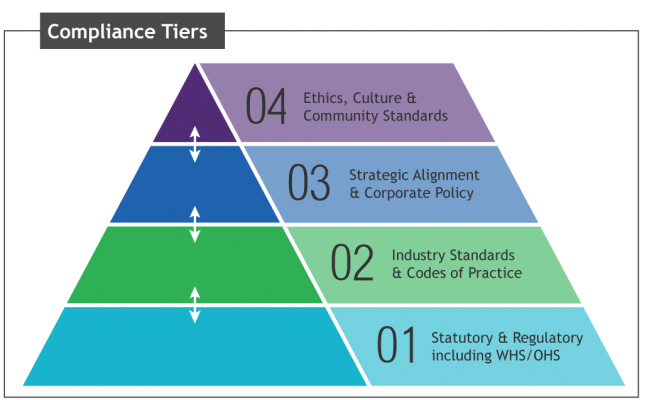“Adhering to the requirements of laws, industry and organisational standards and codes, principles of good governance and accepted community and ethical standards”
– AS 3806-2006 clause 1.3.3
Compliance is primarily about identifying relevant compliance items (i.e. legislation, standards and industry codes, and ethics) and expanding those items into individual elements, then mapping elements to controls, monitoring, reporting and improving. The team at Tutis are experienced in this area; they can help take the complexity and risk out of compliance management. The extent of the controls implemented to achieve compliance objectives are determined by the priorities and level of risk accepted by the organisation.
Increasing Governance
 Governance expectations have progressed from fixed compliance requirements to satisfy statutory and industry standards requirements through to additional discretionary and flexible governance to satisfy corporate policies, strategies and community expectations.
Governance expectations have progressed from fixed compliance requirements to satisfy statutory and industry standards requirements through to additional discretionary and flexible governance to satisfy corporate policies, strategies and community expectations.
This discretionary governance is becoming increasingly important:
- Demand for increased governance, accountability and transparency
- Prevalence of social media
- Protecting reputational risk
The need to ensure compliance for your organisation, and proactively manage and mitigate risk, is increasing. It is not only statutory and industry standards compliance, but an increased need to manage your organisation’s reputation by mitigating the risk of errors that can become publicly damaging (i.e. reputational risk).
